2018-2019 1 20165201 20165203 20165206 实验四 外设驱动程序设计
任务一
学习资源中全课中的“hqyj.嵌入式Linux应用程序开发标准教程.pdf”中的第十一章
提交康奈尔笔记的照片(可以多张)
实验过程:
- 了解康奈尔笔记。
- 小组成员康奈尔笔记的照片:
20165201:

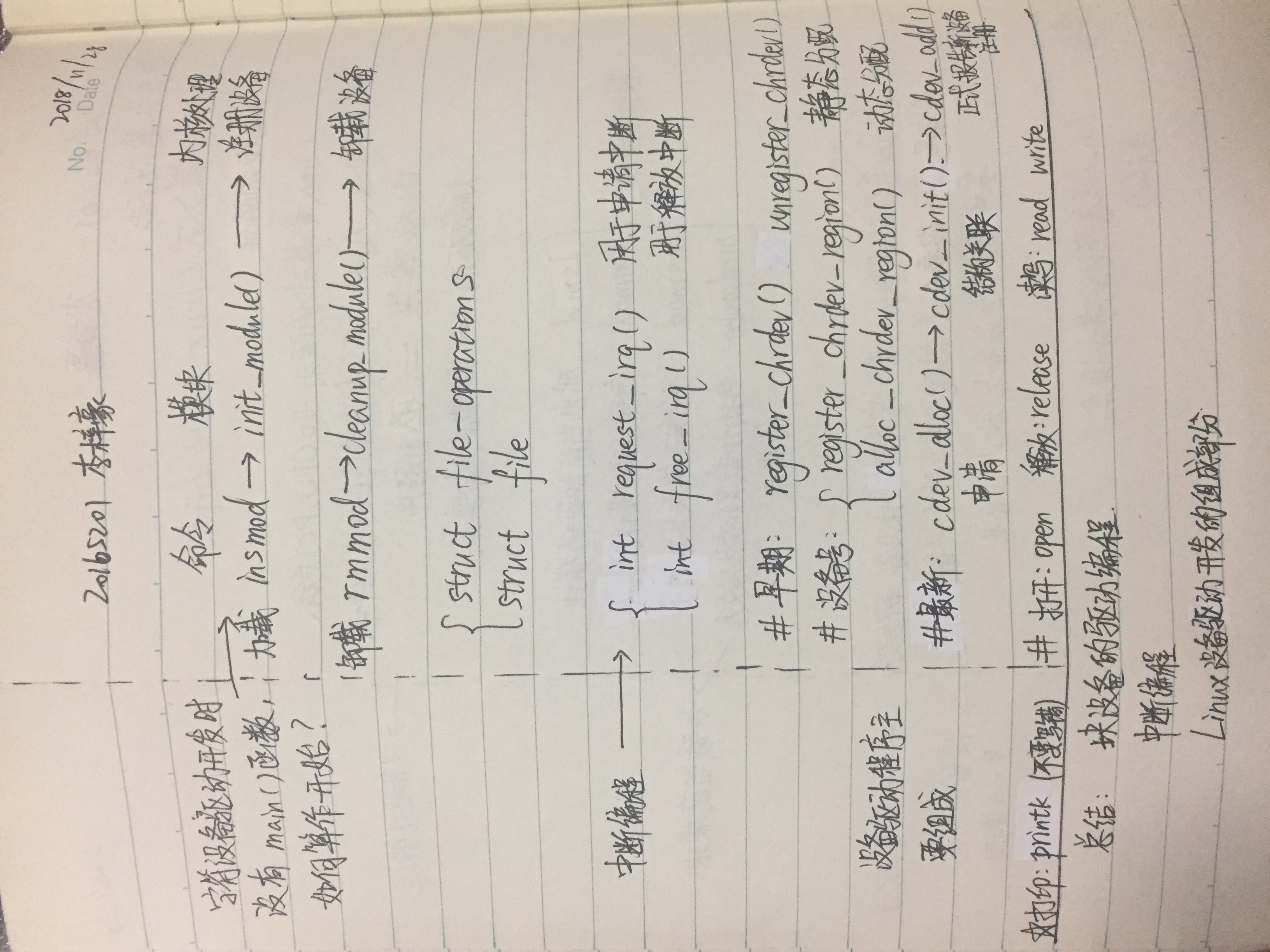
20165203:
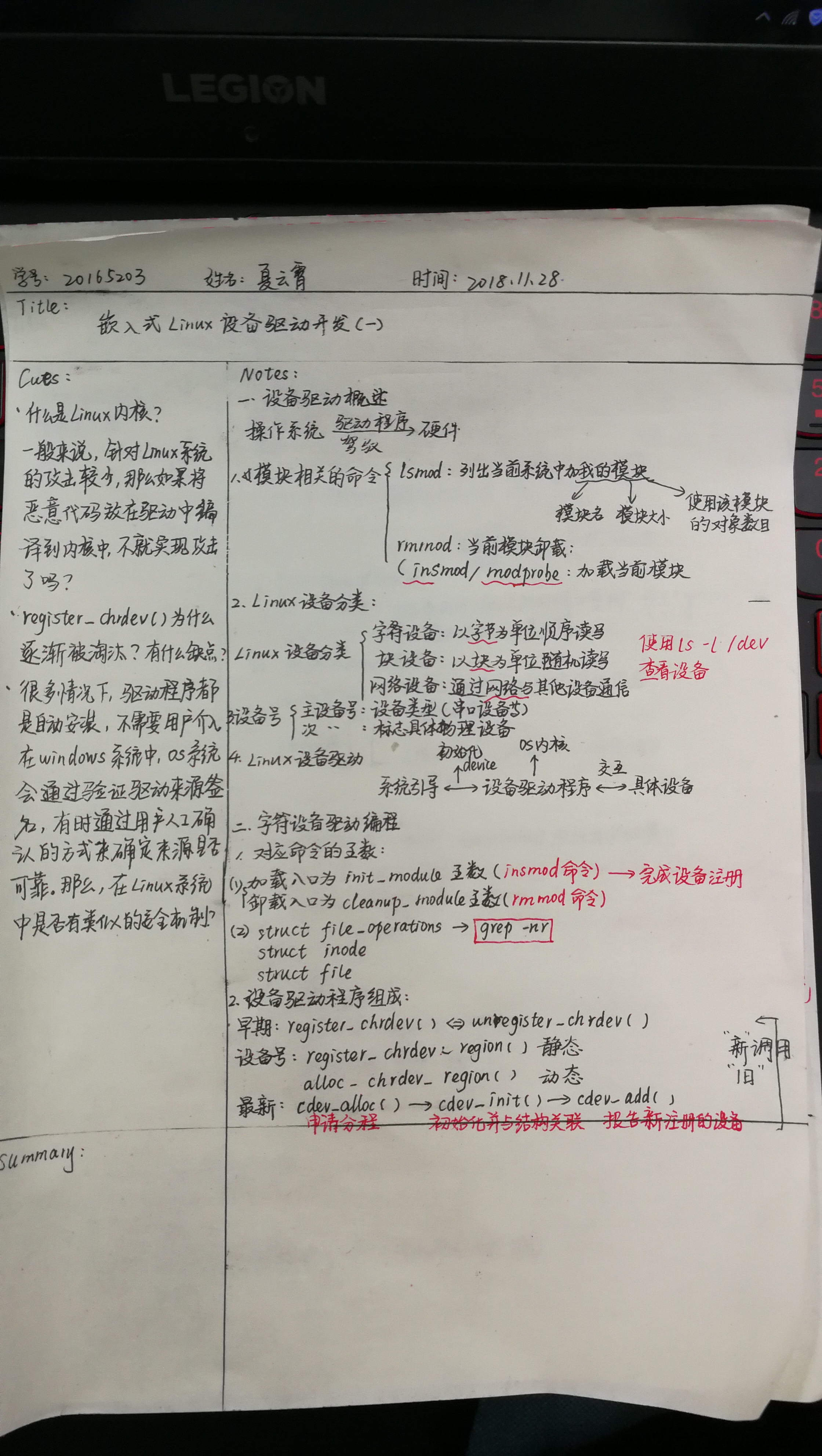
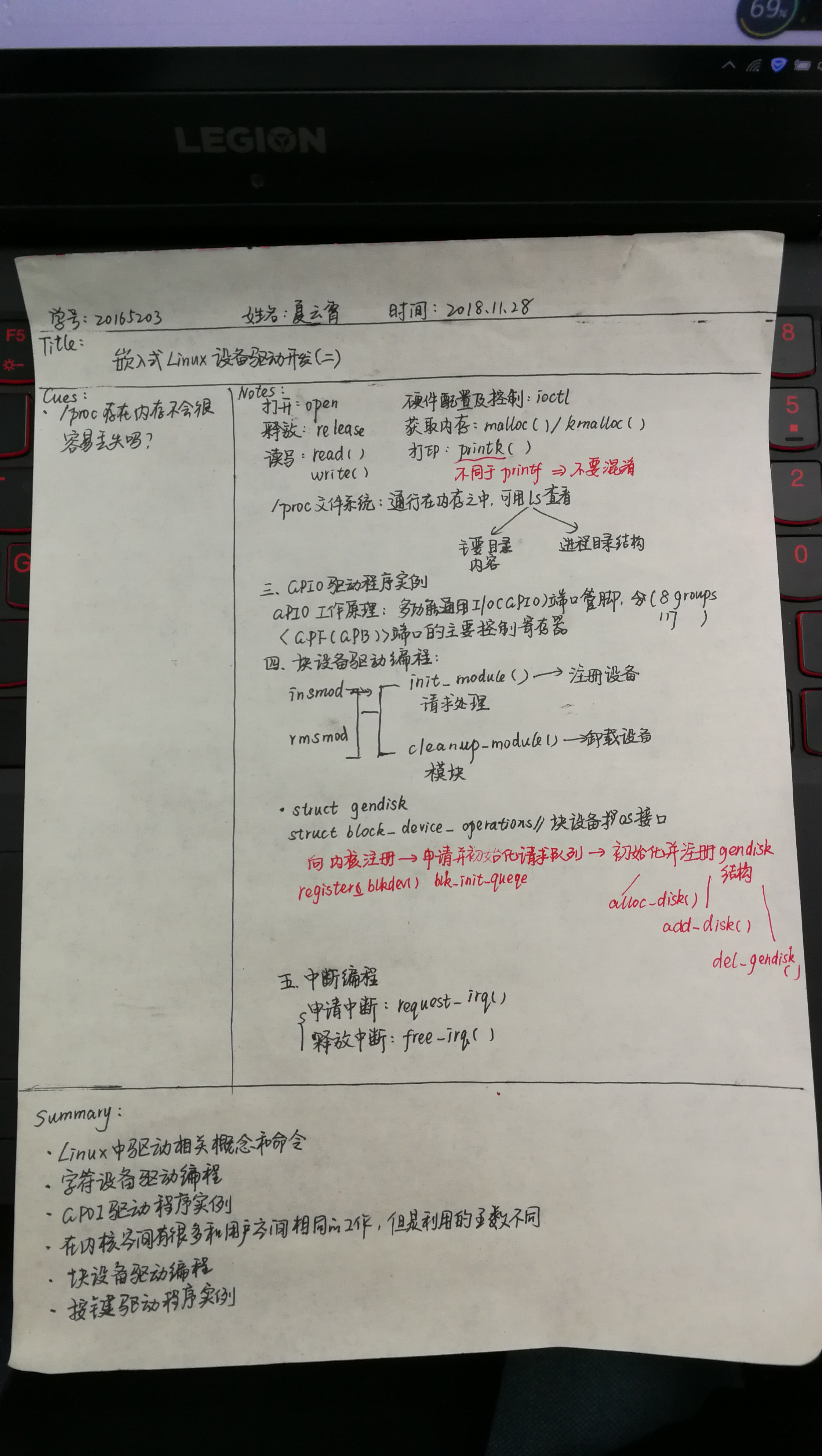
20165206:
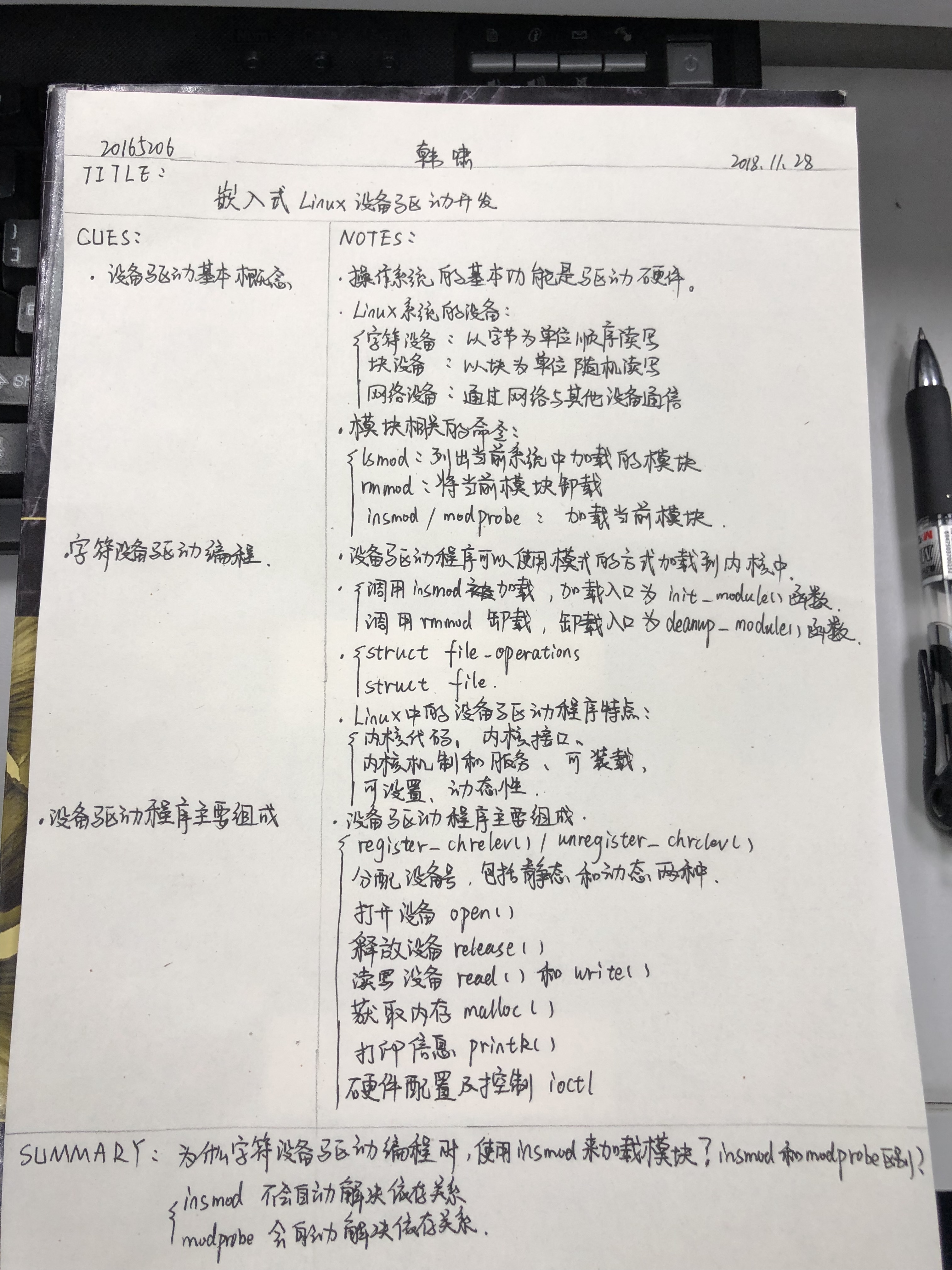
任务二
在Ubuntu完成资源中全课中的“hqyj.嵌入式Linux应用程序开发标准教程.pdf”中的第十一章的test试验
提交编译,加载模块,卸载模块,测试运行的截图(要多张,全屏,体现学号信息)
一、写入代码
- test_drv.c代码如下所示
/* test_drv.c */
#include <linux/module.h>
#include <linux/init.h>
#include <linux/fs.h>
#include <linux/kernel.h>
#include <linux/slab.h>
#include <linux/types.h>
#include <linux/errno.h>
#include <linux/cdev.h>
#include <asm/uaccess.h>
#define TEST_DEVICE_NAME "test_dev"
#define BUFF_SZ 1024
static struct cdev test_dev;
unsigned int major =0;
static char *data = NULL;
static ssize_t test_read(struct file *file, char *buf, size_t count, loff_t *f_pos);
static ssize_t test_write(struct file *file,const char *buffer, size_t count,loff_t *f_pos);
static int test_open(struct inode *inode, struct file *file);
static int test_release(struct inode *inode,struct file *file);
static ssize_t test_read(struct file *file, char *buf, size_t count, loff_t *f_pos)
{
int len;
if (count < 0 )
{
return -EINVAL;
}
len = strlen(data);
count = (len > count)?count:len;
if (copy_to_user(buf, data, count))
{
return -EFAULT;
}
return count;
}
static ssize_t test_write(struct file *file, const char *buffer, size_t count, loff_t *f_pos)
{
if(count < 0)
{
return -EINVAL;
}
memset(data, 0, BUFF_SZ);
count = (BUFF_SZ > count)?count:BUFF_SZ;
if (copy_from_user(data, buffer, count))
{
return -EFAULT;
}
return count;
}
static int test_open(struct inode *inode, struct file *file)
{
printk("This is open operation
");
data = (char*)kmalloc(sizeof(char) * BUFF_SZ, GFP_KERNEL);
if (!data)
{
return -ENOMEM;
}
memset(data, 0, BUFF_SZ);
return 0;
}
static int test_release(struct inode *inode,struct file *file)
{
printk("This is release operation
");
if (data)
{
kfree(data);
data = NULL;
}
return 0;
}
static void test_setup_cdev(struct cdev *dev, int minor,
struct file_operations *fops)
{
int err, devno = MKDEV(major, minor);
cdev_init(dev, fops);
dev->owner = THIS_MODULE;
dev->ops = fops;
err = cdev_add (dev, devno, 1);
if (err)
{
printk (KERN_NOTICE "Error %d adding test %d", err, minor);
}
}
static struct file_operations test_fops =
{
.owner = THIS_MODULE,
.read = test_read,
.write = test_write,
.open = test_open,
.release = test_release,
};
int init_module(void)
{
int result;
dev_t dev = MKDEV(major, 0);
if (major)
{
result = register_chrdev_region(dev, 1, TEST_DEVICE_NAME);
}
else
{
result = alloc_chrdev_region(&dev, 0, 1, TEST_DEVICE_NAME);
major = MAJOR(dev);
}
if (result < 0)
{
printk(KERN_WARNING "Test device: unable to get major %d
", major);
return result;
}
test_setup_cdev(&test_dev, 0, &test_fops);
printk("The major of the test device is %d
", major);
return 0;
}
void cleanup_module(void)
{
cdev_del(&test_dev);
unregister_chrdev_region(MKDEV(major, 0), 1);
printk("Test device uninstalled
");
}
- test.c代码如下:
/* test.c */
#include <stdio.h>
#include <stdlib.h>
#include <string.h>
#include <sys/stat.h>
#include <sys/types.h>
#include <unistd.h>
#include <fcntl.h>
#define TEST_DEVICE_FILENAME "/dev/test_dev"
#define BUFF_SZ 1024
int main()
{
int fd, nwrite, nread;
char buff[BUFF_SZ];
fd = open(TEST_DEVICE_FILENAME, O_RDWR);
if (fd < 0)
{
perror("open");
exit(1);
}
do
{
printf("Input some words to kernel(enter 'quit' to exit):");
memset(buff, 0, BUFF_SZ);
if (fgets(buff, BUFF_SZ, stdin) == NULL)
{
perror("fgets");
break;
}
buff[strlen(buff) - 1] = '�';
if (write(fd, buff, strlen(buff)) < 0)
{
perror("write");
break;
}
if (read(fd, buff, BUFF_SZ) < 0)
{
perror("read");
break;
}
else
{
printf("The read string is from kernel:%s
", buff);
}
} while(strncmp(buff, "quit", 4));
close(fd);
exit(0);
}
- Makefile内容如下:
ifeq ($(KERNELRELEASE),)
KERNELDIR ?= /lib/modules/$(shell uname -r)/build
PWD := $(shell pwd)
modules:
$(MAKE) -C $(KERNELDIR) M=$(PWD) modules
modules_install:
$(MAKE) -C $(KERNELDIR) M=$(PWD) modules_install
clean:
rm -rf *.o *~ core .depend .*.cmd *.ko *.mod.c .tmp_versions
.PHONY: modules modules_install clean
else
obj-m := test_drv.o
endif
- test_drv_load脚本内容如下:
#!/bin/sh
module="test_drv"
device="test_dev"
mode="664"
group="david"
# remove stale nodes
rm -f /dev/${device}
# invoke insmod with all arguments we got
# and use a pathname, as newer modutils don't look in . by default
/sbin/insmod -f ./$module.ko $* || exit 1
major=`cat /proc/devices | awk "\$2=="$device" {print \$1}"`
mknod /dev/${device} c $major 0
# give appropriate group/permissions
chgrp $group /dev/${device}
chmod $mode /dev/${device}#!/bin/sh
module="test_drv"
device="test_dev"
mode="664"
group="david"
# remove stale nodes
rm -f /dev/${device}
# invoke insmod with all arguments we got
# and use a pathname, as newer modutils don't look in . by default
/sbin/insmod -f ./$module.ko $* || exit 1
major=`cat /proc/devices | awk "\$2=="$device" {print \$1}"`
mknod /dev/${device} c $major 0
# give appropriate group/permissions
chgrp $group /dev/${device}
chmod $mode /dev/${device}
- test_drv_unload脚本内容如下:
#!/bin/sh
module="test_drv"
device="test_dev"
# invoke rmmod with all arguments we got
/sbin/rmmod $module $* || exit 1
# remove nodes
rm -f /dev/${device}
exit 0
二、加载模块
- 先给脚本文件增加可执行权限:
chmod +x ./test_drv_load - 以管理员身份运行加载脚本:
sudo ./test_drv_load - 加载成功
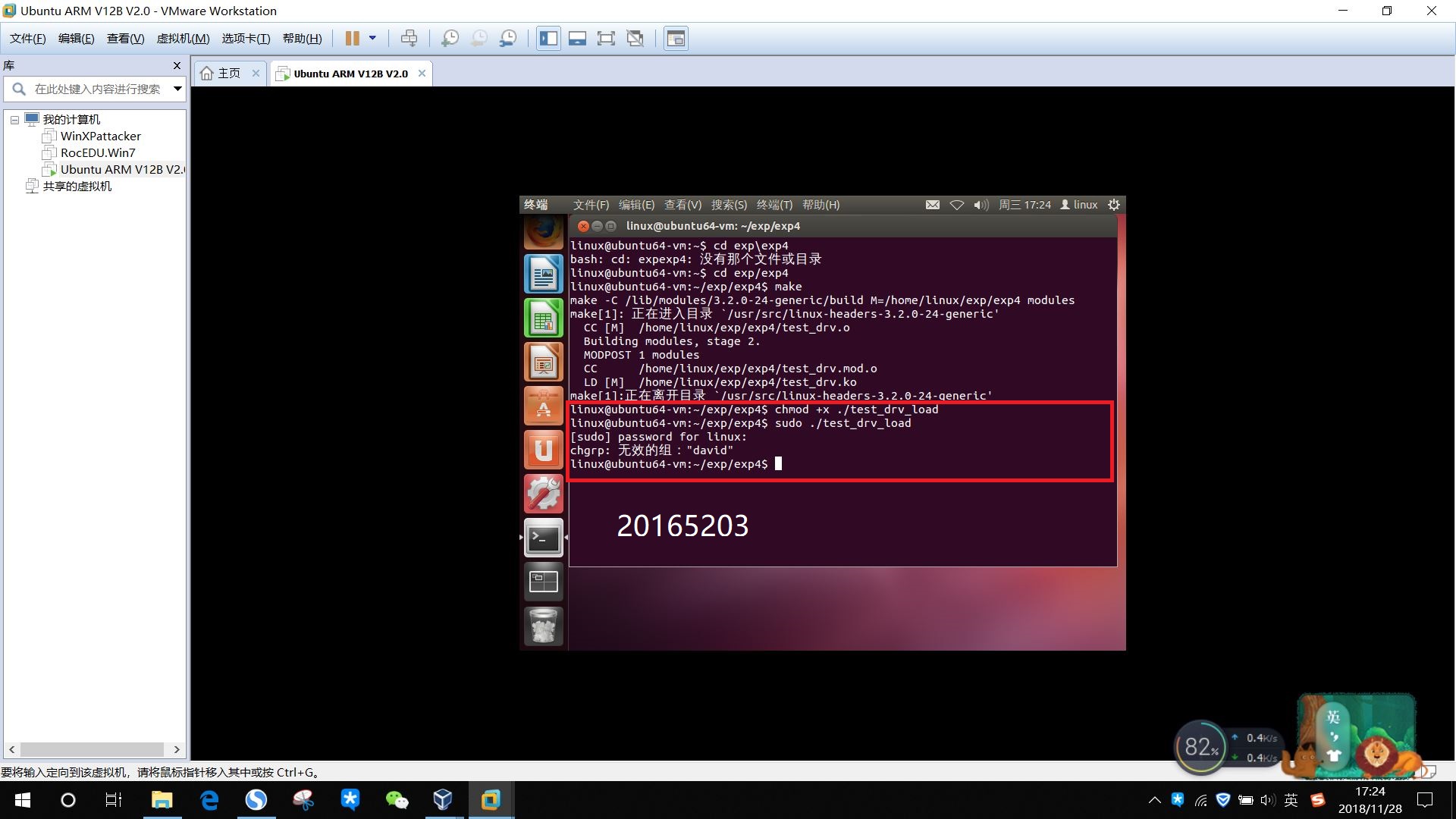
三、编译运行test.c
- 编译:
gcc test.c -o test - 运行:
./test - 根据提示输入学号信息
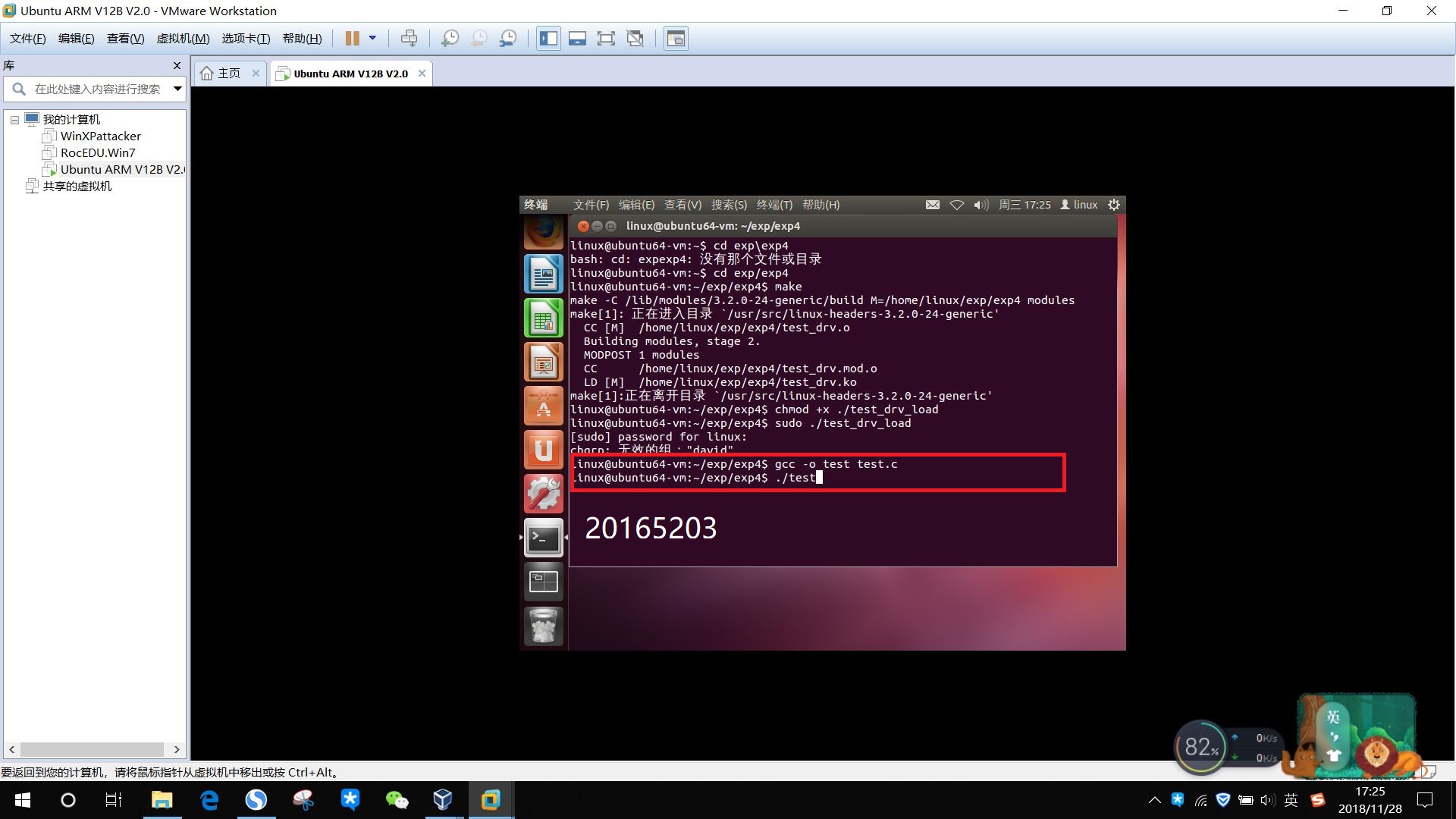
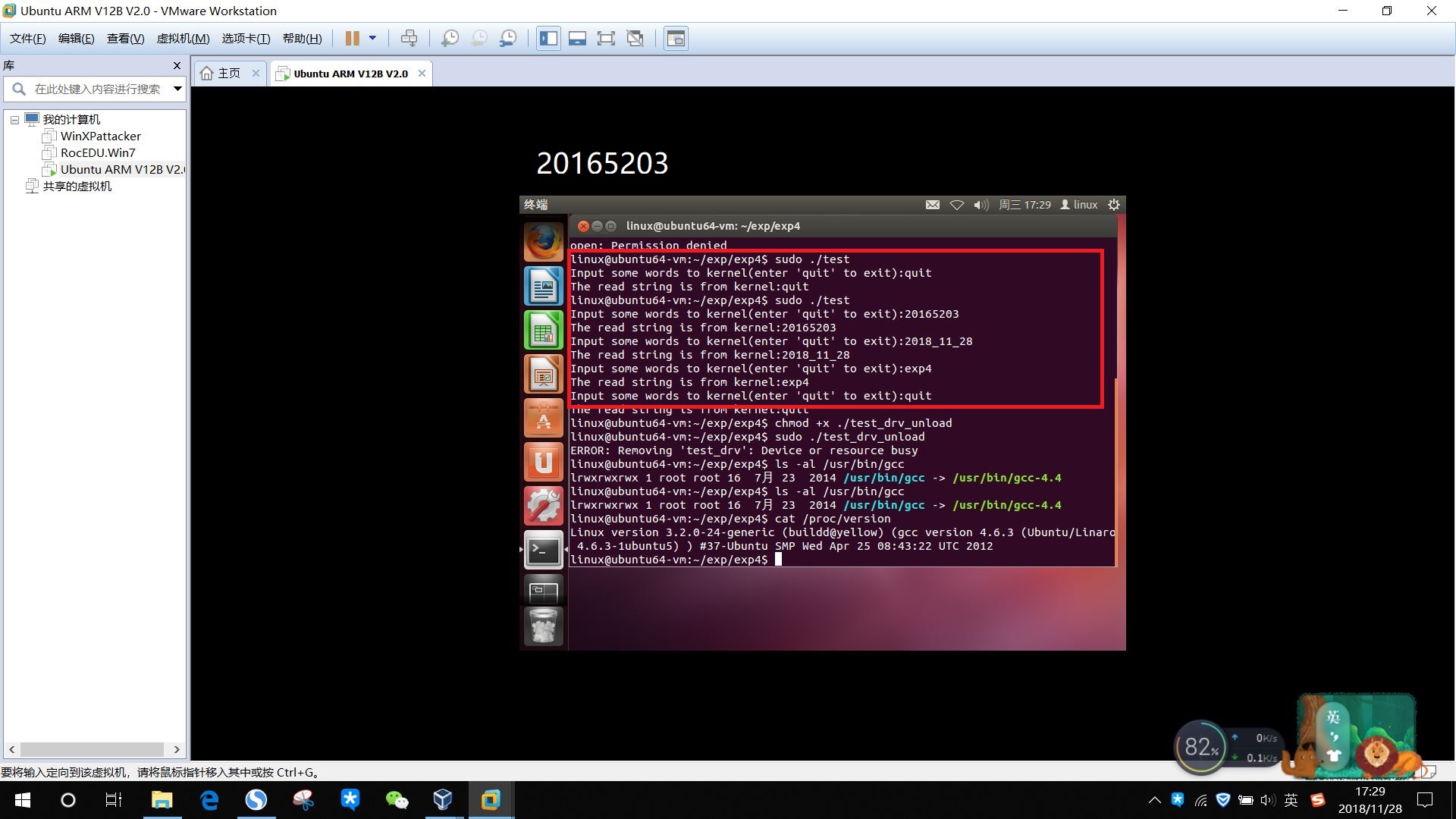
四、卸载模块
- 先给脚本文件增加可执行权限:
chmod +x ./test_drv_unload - 再以管理员身份运行加载脚本:
sudo ./test_drv_unload
实验中遇到的问题及解决方法
Q:加载模块时在自己电脑虚拟机上无法加载。
A:在娄老师之前实验时提供的VM虚拟机上加载成功。
实验感想
本次实验学习了字符设备驱动编程,了解分配设备号、设备注册、内核操作的相关函数的使用方法,重点是第一次自主地用康奈尔笔记进行学习,感觉康奈尔笔记的确可以帮助自己更好地梳理知识点,带着问题学习并能学有所获,其实,我们小组还把大家的笔记中的summary部分集合起来,可以将收获分享给大家,这样一份收获可以变成多份了。